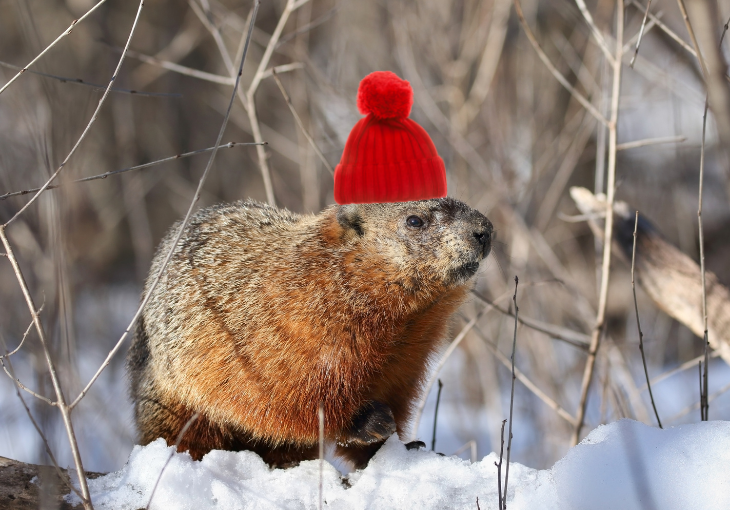Punxsutawney Phil is predicting six more weeks of winter, but don’t let a rodent’s weather prediction wreck your heart health. The American Heart Association has some important tips for getting healthy and staying active during the cold weeks ahead.
- Stay active safely: Make sure you wear layers to keep warm while exercising outdoors to avoid cold weather hazards like hypothermia and frostbite and take It’s important to stay active year-round but make sure you’re not overexerting yourself in winter months. When in doubt, ask your doctor.
- Stay hydrated: Just because it’s cold and you may not feel thirsty, it’s just as important to drink water like you would during a warm weather workout. Thirst isn’t the best indicator that you need to drink, even if you aren’t sweating as much you still need to hydrate.
- Watch out for the added calories in cold weather drinks: Comforting drinks like flavored lattes and hot chocolate can be loaded with unwanted sugar and fat.
- Get vaccinated: COVID-19 and the flu are especially dangerous for people with cardiovascular disease.
- Learn CPR: EMS response times can be slower with inclement weather. More than 350,000 cardiac arrests happen outside of a hospital each ear. If administered immediately after cardiac arrest, CPR can double or triple a person’s chance of survival.
There are actually some advantages to working out in cold weather – with no heat and humidity to deal with you may be able to work out longer in cold weather which means you can burn even more calories. Exercise also boosts your immunity during the cold and flu season, which can be especially important in dealing with possible COVID infection. Spending time outdoors is a great way to get much needed vitamin D, which can be good for your mood.
If you are heading outdoors for exercise, winter sports like skiing or skating or if you have to shovel your car out of a snow drift, there are cardiovascular risks to consider. The cold causes blood vessels to contract and coronary arteries to constrict, which can raise blood pressure, increasing the risk of heart attack and stroke.
Strenuous activities such as walking through heavy snow or snow shoveling can add stressors to the heart. Our hearts also have to work extra hard in cold weather to keep a healthy body temperature.
If it’s too cold, get creative with at-home workouts. There are many online resources available to assist in developing a workout at home. Athletes can still visit a gym or even walk the mall if they use the appropriate precautions to protect against COVID.
More information about heart disease and staying heart healthy are available at heart.org.
